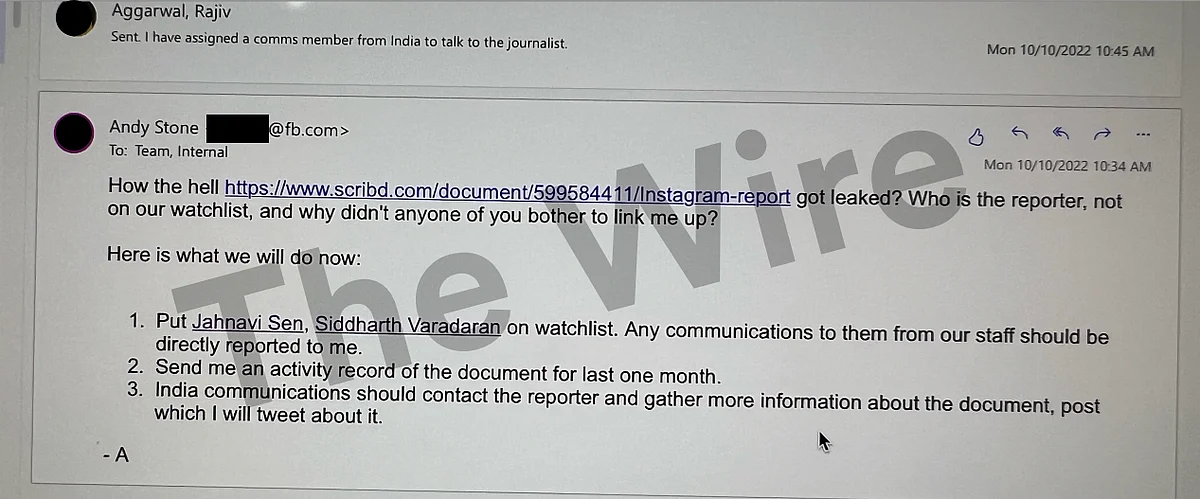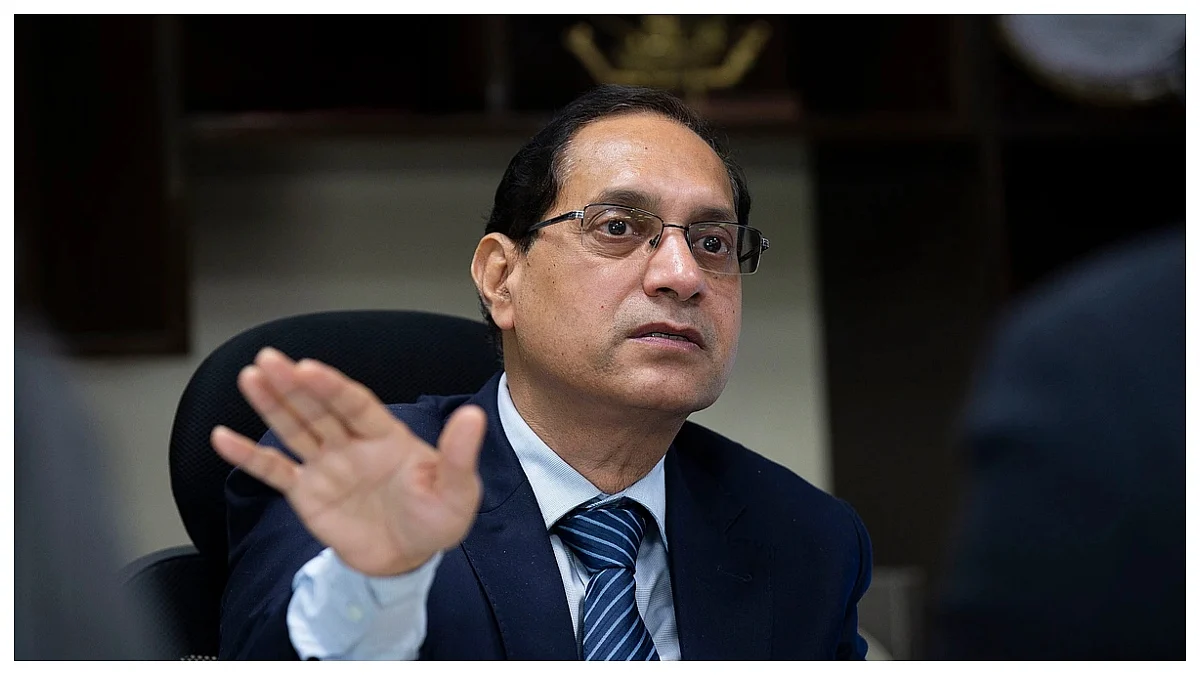In 2020, Facebook’s policy head in India Ankhi Das had to step down after a Wall Street Journal report that the social media platform deliberately avoided acting against hate speech by supporters of the ruling BJP. More recently the online giant failed a test by non-profit Global Witness and Foxglove, which checked if it could detect hate speech in Ethiopia and Myanmar. At the same time, Meta’s other platform Instagram is embroiled in a controversy, after a report in The Wire claimed that posts reported by BJP IT cell head Amit Malviya are immediately deleted from the platform.

The documentation produced by The Wire. | The Wire
Meta’s initial dismissal
Responding to the grave accusations, Meta’s director for policy communications Andy Stone responded by claiming that the posts were scanned by an automated system and the documentation in The Wire’s report was fabricated.
Following this, The Wire published another report with screengrabs of an internal email, purportedly sent to Meta employees by Stone. It showed that he was upset about the document getting leaked, suggesting that The Wire’s claims were authentic.

The supposed email by Stone to employees. | The Wire
Meta hits out with a sharper response
Now Meta’s Chief Information Security Officer Guy Rosen has joined the debate with a thread pointing out discrepancies in the report. He goes on to point out that there’s no such email address as ‘Internal’ visible in the screengrab, and that the address attributed to Stone also isn’t used by him anymore. Rosen also claims that the URL to the said internal report doesn’t work, and also wondered if Wire was the victim of a hoax or propagating it.
What exactly is XCheck?
The XCheck or Cross Check program created a buzz last year, when a Wall Street Journal report alleged that the tool introduced for quality control, has actually become a tool to extend undue privileges to celebrities and politicians. The program allegedly allowed high-profile users who were ‘whitelisted’ to post content that violated standards, without any consequences.
But Rosen has also claimed that XCheck didn’t provide any privileges, and was instead aimed at preventing “over-enforcement”. The tool is notable since a 38 per cent increase in hate speech and an 86 per cent rise in violent content indicates Facebook needs more enforcement.










